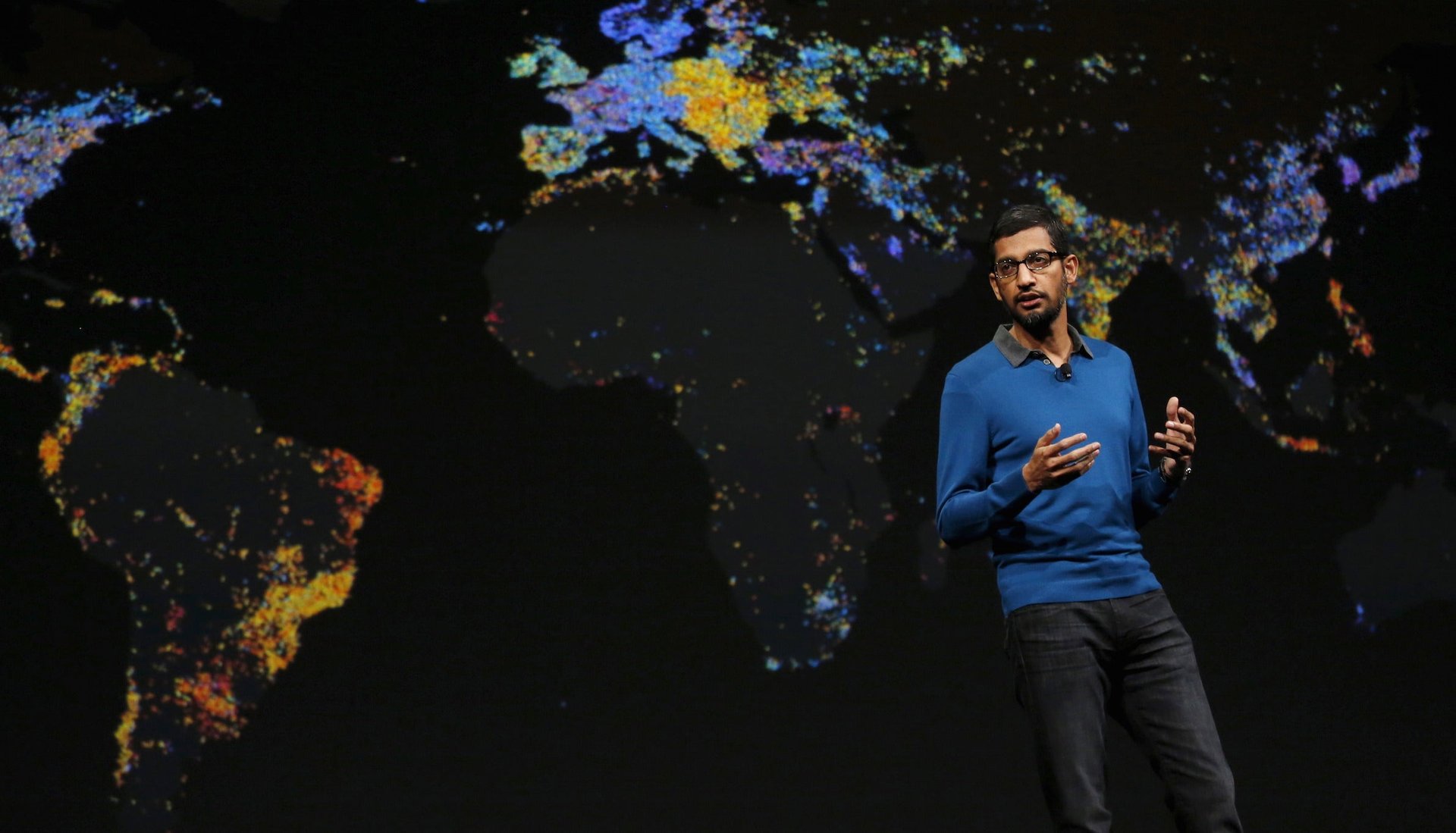Google’s new CEO, Sundar Pichai, just got the keys to the castle in the Alphabet restructuring
Sundar Pichai just got one of the biggest promotions in Google’s history. As part of the company’s announcement that it will transition into a holding company called Alphabet and split its core internet businesses from R&D efforts like life sciences and driver-less cars, Pichai has been put squarely in charge of what is far and away the biggest and most important part of the company.


Sundar Pichai just got one of the biggest promotions in Google’s history. As part of the company’s announcement that it will transition into a holding company called Alphabet and split its core internet businesses from R&D efforts like life sciences and driver-less cars, Pichai has been put squarely in charge of what is far and away the biggest and most important part of the company.
He is CEO of Google, and while that means a little bit less than it did when Larry Page had the job over the last four years, it’s not a whole lot less. Pichai will still be responsible for one of the world’s biggest cashflow-generating machines, which pays for all of the moonshots and ambitious investments. The restructuring also provides a way to recognize him for the job he was pretty much doing already, without displacing Page or co-founder Sergey Brin.
It’s a huge vote of confidence, and a way of keeping Pichai, whose name pops up whenever there’s a CEO vacancy at a major tech firm, firmly in the fold.
“Sergey and I have been super excited about his progress and dedication to the company,” Page wrote in his memo announcing the change. “And it is clear to us and our board that it is time for Sundar to be CEO of Google. I feel very fortunate to have someone as talented as he is to run the slightly slimmed down Google and this frees up time for me to continue to scale our aspirations.”
It’s the latest step in a meteoric rise for Pichai, who joined the company in 2004 from McKinsey. He’s well liked within Google and in the broader industry, and is known for mentoring product managers and skillfully navigating the company’s sometimes contentious internal politics.
Over the past few years, he became the foremost executive at the company, behind its founders. He’s become the most prominent face at Google’s product launches and in the press.
He started off as a product manager in charge of Google’s browser search toolbar. He then led Chrome’s ascension to become the most popular internet browser in the world, and took over the company’s apps, including Gmail, in 2013, before getting the keys to the company’s hugely popular Android mobile OS in 2014.
In October, he was put in charge of all of Google’s major products to give Larry Page more time to focus on the big picture. Now Page’s job is all big picture, and each of Alphabet’s separate units will have their own semi-autonomous CEO. But none of them will control even a tiny fraction of the revenue and headcount at Pichai’s disposal.
A lot of the flashy and exciting stuff—the military robots, life extension technology, and internet balloons—will be outside of his control. But Pichai is the one that everyone will be watching.